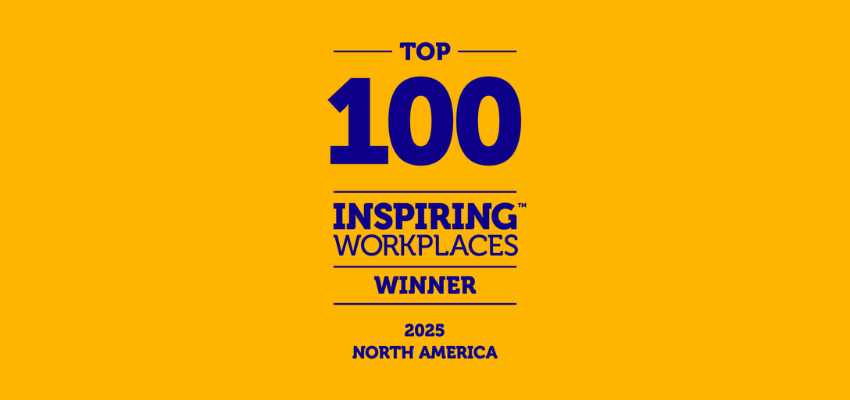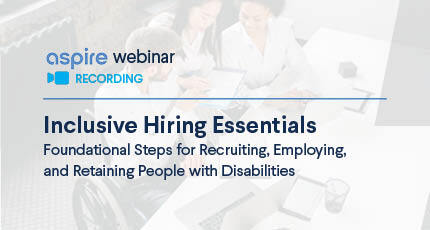Building Disability Equity in Healthcare
Date
September 23, 2021
Time
5 minutes
Category
Thought Leadership
Share

On August 5th, 2021 Aspire co-hosted a virtual panel event with Disability Lead on Building Disability Equity in Healthcare.
This live virtual panel discussion focused on critical issues around health and wellness for people with disabilities. The panel raised awareness, shared knowledge, and invited advocacy on the topic of quality of healthcare for people with disabilities.
Speakers

Andrés Gallegos
National Healthcare Attorney & Chair of the National Council on Disability
Andrés is a shareholder with Robbins, Salomon & Patt, Ltd., in Chicago Illinois, where he has founded and directs the law firm’s national disability rights practice. The main focus of that practice is to improve access to healthcare and wellness programs for persons across all categories of disabilities. Andrés was named Chairman of the National Council on Disability by President Biden on January 20, 2021. Andrés is a person with a disability having sustained a spinal cord injury resulting in quadriplegia in November 1996.

LaShon Gurrola
Registered Nurse Care Manager at Rush University Medical Center
LaShon is a registered nurse working with vulnerable populations. She is knowledgeable on health equity because she sees the impact when health equity and access to care is lacking in vulnerable communities. LaShon advocates and teaches others how to advocate for themselves with their care team.

Rahnee Patrick
Director, Division of Rehabilitation Services at IL Department of Human Services
Rahnee is leading equitable employment for people with disabilities, a key component of health equity. The need for access for people with disabilities has been a driver in her career. Rahnee holds a Master of Arts in Industrial and Organizational Psychology.
Moderator

Kristin Krok
Director of Life Enrichment at Aspire
Kristin has been working with people with disabilities for over 25 years, and has experience in direct care, program management, and program development. She has overseen the development and expansion of health promotion programs at Aspire, while promoting wellness for individuals served.
Panel Questions & Answers from the Audience:
Panelist LaShon Gurrola was able to provide some insight and feedback on a few questions from our audience.
Additional Resources: Aspire’s Podcast, Amplify Inclusion
Additional Resources: Accessible Healthcare Infographic from Andrés Gallegos

Be Included
Get news and events information.

